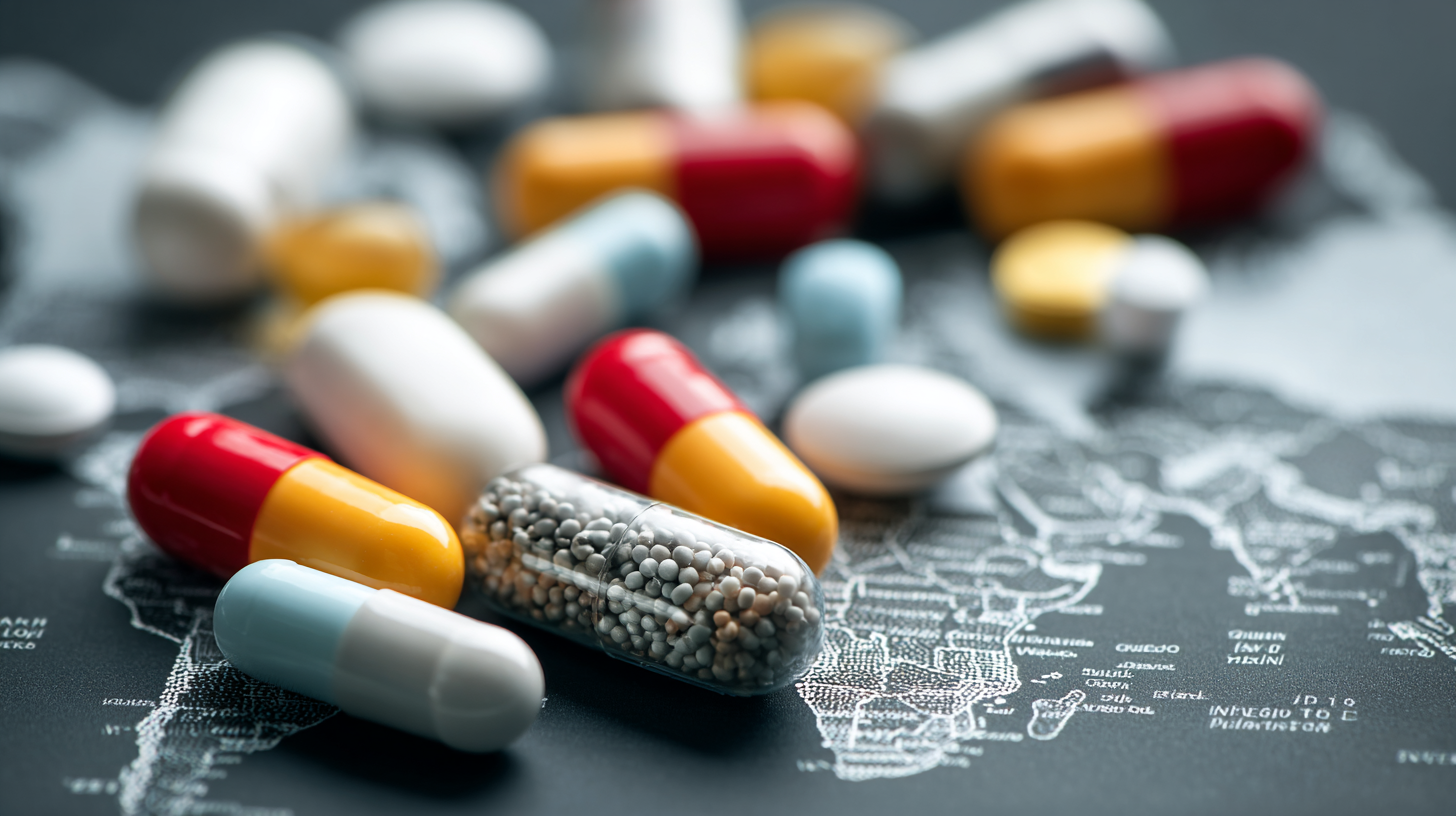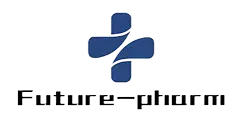
5 Reasons Why You Should Choose the Best Pharmaceutical Products for Global Sourcing
The global pharmaceutical industry is estimated to reach $1.57 trillion by 2023, driven by an increasing demand for high-quality medicines and innovative healthcare solutions. As organizations continue to navigate the complexities of global sourcing, selecting the best pharmaceutical products becomes paramount. According to a report by IQVIA, more than 1,800 new drug approvals occurred in 2020, highlighting the rapid advancements and the crucial need for reliable pharmaceutical products in various markets. This checklist will explore five key reasons why prioritizing top-tier pharmaceutical products not only enhances compliance and safety but also stimulates competitive advantage and operational efficiency. In an era where health outcomes are increasingly linked to product quality, understanding the merits of carefully chosen pharmaceutical sourcing can make all the difference in a company's success.

The Importance of Quality Assurance in Pharmaceutical Global Sourcing
In the realm of global sourcing, the importance of quality assurance in pharmaceutical products cannot be overstated. With a staggering 25% of drugs consumed in developed countries sourced from overseas, ensuring that these products meet stringent safety and efficacy standards is paramount. According to a report by the World Health Organization, substandard and falsified medications contribute to a significant portion of global health risks, highlighting the critical need for robust quality assurance measures in pharmaceutical sourcing.
When selecting pharmaceutical products globally, it’s vital to implement strict quality assurance protocols. Manufacturers must adhere to Good Manufacturing Practices (GMP), which are essential for maintaining product integrity. A study published by the Institute for Quality Assurance in Pharmaceuticals noted that companies employing rigorous QA processes see a 40% reduction in product recalls. To mitigate risks, companies should consider third-party audits and risk assessments that evaluate suppliers' manufacturing processes.
Tips: Always vet your suppliers thoroughly. Look for certifications, such as ISO 9001 and GMP, to ensure compliance with international quality standards. Additionally, keep abreast of regulatory updates to navigate the complexities of pharmaceutical sourcing effectively. Leveraging technology like blockchain can also enhance traceability in the supply chain, further safeguarding product quality.
Understanding the Impact of Regulatory Standards on Global Sourcing Decisions
When it comes to global sourcing of pharmaceutical products, understanding regulatory standards is crucial for ensuring product quality and safety. According to a report by the World Health Organization, approximately 15% of pharmaceuticals sold worldwide are counterfeit, making the adherence to stringent regulatory frameworks imperative. Countries with robust regulatory environments, such as the United States and those in the European Union, impose rigorous testing and quality assurance measures that help safeguard consumer health. This compliance not only protects patients but also bolsters the reputability of sourcing enterprises.
Moreover, navigating the complex landscape of international regulations can lead to significant cost savings and risk mitigation. A study from the FDA indicates that pharmaceutical companies that comply with Good Manufacturing Practices (GMP) see a reduction in product recalls by as much as 30%. By choosing suppliers who meet these regulatory standards, businesses not only ensure compliance but also enhance their operational efficiency and reduce potential liabilities. In an era where regulatory non-compliance can lead to hefty fines and severe reputational damage, prioritizing the best pharmaceutical products and their adherence to global standards is a strategic advantage.
5 Reasons Why You Should Choose the Best Pharmaceutical Products for Global Sourcing
| Reason | Impact of Regulatory Standards | Examples |
|---|---|---|
| Quality Assurance | Ensures safety, efficacy, and quality of products | Clinical trials, GMP compliance |
| Cost Efficiency | Compliance can reduce waste and recalls | Bulk purchasing agreements, logistics savings |
| Regulatory Compliance | Avoids legal penalties and product rejections | FDA, EMA regulations adherence |
| Market Access | Facilitates entry into new markets | Approval from health authorities globally |
| Reputation Management | Strengthens trust and reliability among consumers | Positive audits, certifications, and ratings |
Leveraging Technology for Better Manufacturer Assessment in Pharmaceuticals
In the rapidly evolving pharmaceutical industry, leveraging technology for better manufacturer assessment has become crucial for global sourcing. The integration of artificial intelligence (AI) and cutting-edge technologies is reshaping how companies evaluate manufacturers, ensuring compliance, quality, and efficiency. A comprehensive review shows that AI-driven approaches significantly enhance drug discovery, formulation development, and quality control, all of which are vital stages that directly impact a pharmaceutical product's success on the market.

Data from recent studies indicate that 92% of pharmaceutical companies are now adopting AI technologies to streamline operations, improve accuracy, and reduce the time taken for drug development. The "golden batch" approach, which sets the standard for ideal production runs, exemplifies how technology can not only maintain consistency but also enhance the overall quality of pharmaceutical products. As the Asia-Pacific region emerges as a leader in AI-driven drug discovery, it is essential for global sourcing strategies to align with these advancements, ensuring that companies select the best manufacturers equipped to meet the industry's demanding standards. By prioritizing technology in their assessments, businesses can position themselves for success amidst the ongoing transformation in the pharmaceutical landscape.
Evaluating Supply Chain Reliability: Key Metrics and Data in Pharmaceutical Sourcing
Evaluating supply chain reliability is crucial when sourcing pharmaceutical products globally, as it directly impacts safety, efficiency, and costs. According to a 2021 report by the IQVIA Institute, global pharmaceutical spending is projected to reach $1.5 trillion by 2023, highlighting the importance of a robust supply chain to manage this significant market. Key metrics for assessing supply chain reliability include lead time, order accuracy, and on-time delivery rates. For instance, a benchmark analysis by the Pharmaceutical Distribution Industry suggests that leading companies maintain an average on-time delivery rate of over 95%, which is essential for minimizing stockouts and ensuring patient access to critical medications.
Additionally, data from the World Health Organization (WHO) indicates that approximately 50% of manufacturers experience supply chain disruptions annually. This underscores the necessity for pharmaceutical firms to implement comprehensive risk management strategies. Employing advanced analytics, companies can track real-time logistical data, allowing them to proactively address potential disruptions. By prioritizing metrics such as inventory turnover ratios and supplier performance ratings, firms can enhance their decision-making processes and ensure a more reliable sourcing strategy that ultimately supports global health outcomes.
The Financial Implications of Choosing Quality Products in Global Pharmaceutical Markets
When it comes to sourcing pharmaceutical products globally, the financial implications of choosing quality products cannot be overstated. According to a report by IQVIA, the global healthcare market is projected to reach $1.5 trillion by 2023, with pharmaceuticals accounting for a significant portion of this figure. Selecting only the best pharmaceutical products can minimize risks associated with counterfeit drugs, ultimately reducing long-term financial losses. Counterfeit medications not only result in substantial economic costs—estimated at $200 billion annually—but also pose serious health risks that can lead to increased liability and loss of market reputation for companies that inadvertently distribute them.

Investing in high-quality pharmaceuticals also leads to enhanced patient outcomes, which is crucial for maintaining competitive advantage in today's healthcare market. A study published in the Journal of Medical Economics indicates that high-quality products can reduce hospital readmission rates by up to 30%. This directly correlates with cost savings for healthcare providers and payers alike, reinforcing the notion that prioritizing quality over cost can yield better financial outcomes in the long run. Therefore, as the pharmaceutical landscape evolves, the decision to focus on quality sourcing not only aligns with regulatory compliance but also positively impacts overall profitability and sustainability for businesses in the sector.
